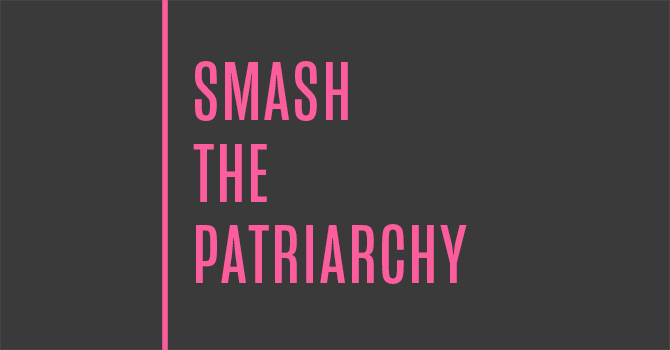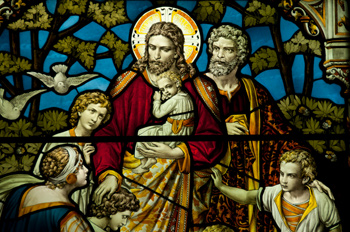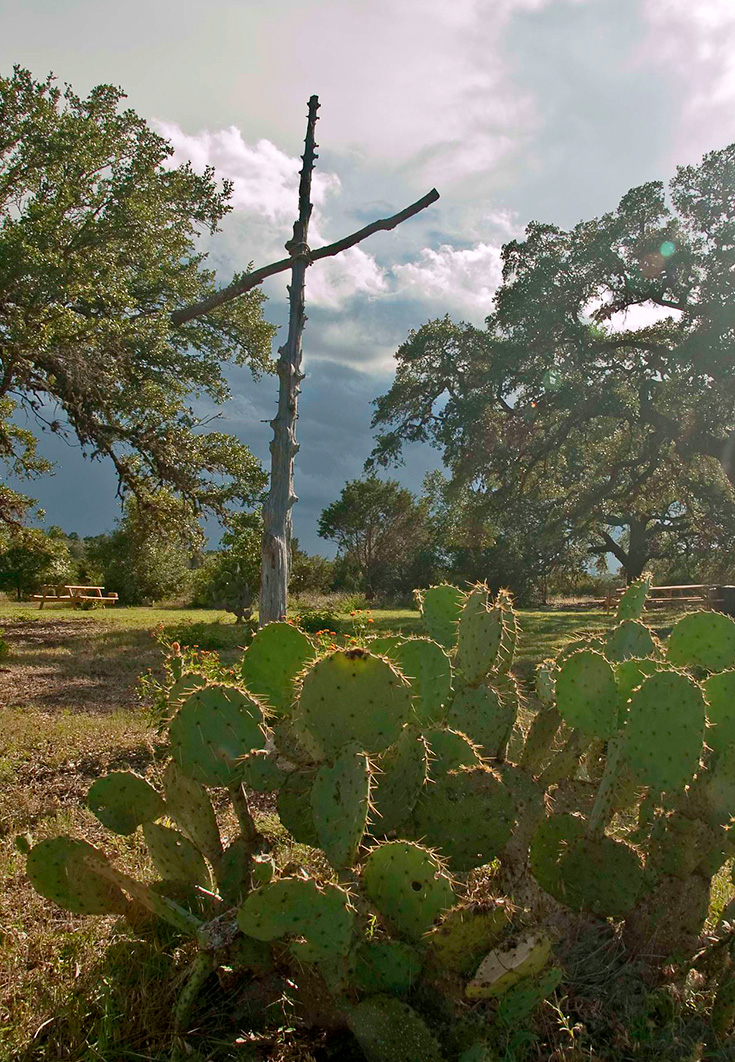Early on November 8, 2016, I am having a cup of coffee in a doughnut shop. I wave to a church member who walks in with her young daughter.
“Guess what?” the 7-year-old asks me. “We just voted for the first woman president!”
I give her a high-five, then point to my shirt. “That’s why I’m wearing this shirt today!”
Someone from my congregation had given me the shirt a couple of years before. It’s bright pink with a majestic rainbow unicorn. Beneath the hoofs, in large block letters, are these words: “Trample the Patriarchy.”
As a children’s Sunday school teacher, I offer a brief lesson on the history of patriarchy, which is the history of the politics of Western statecraft and also the story of the church.
Our hands sticky with doughnut glaze, rainbow sprinkles scattered across the table, we are giddy at the idea of a woman behind that desk in the Oval Office. I see a world of possibility open up in that child’s eyes.
The next day, our dreams become a nightmare. This country has elected a misogynist.
I wish the Bible were the antidote we need to sexism, but not all of its pages inspire dismantling the structures of patriarchy that have us in a stranglehold.
Masculine images for God pervade our Scriptures. The overwhelming sense from the Bible is that God is more like a man than a woman. And, as Mary Daly taught us decades ago in “Beyond God the Father,” “If God is male, then the male is God.”
To privilege masculine depictions of God is to reinforce male dominance. Men become imbued with the authority of God. There are “political effects of naming God as exclusively masculine,” writes Virginia Ramey Mollenkott in “The Divine Feminine.”
When God is husbandlike and fatherlike, husbands and fathers become godlike, she explains. “The stage is set for exploitation of girls and women.”
Mollenkott calls for an honest look at the Bible’s bias -- manifest in predominantly masculine God-language because the Bible comes from deeply patriarchal culture.
Once we recognize this tendency of Scripture, then we can begin to notice the miracles of egalitarianism, the episodic visions of liberation.
“Ordinarily the group in power does not depict God in terms of the group they are oppressing,” Mollenkott writes. “But in the case of the Bible, it happened. The fact that it happened rarely should not surprise us. The fact that it happened at all should surprise us. And delight us. And challenge us.”
Our church has responded to this challenge. Last winter, we organized worship services around Scripture that would inspire us to imagine God with other-than-masculine language, to cultivate an alternative biblical literacy in our struggle against the oppression of patriarchy.
This was a two-month detox for us, a season to reorient our prayers, songs, sermons and discussions.
Week 1: Psalm 36:5-9; Exodus 3:13-15
Week 2: Deuteronomy 32:1-6, 15b-18; Isaiah 42:14-17
Week 3: Psalm 91:1-6; Isaiah 46:3-9
Week 4: Proverbs 8:1-9, 23-33; 1 Corinthians 1:20-31
Week 5: Wisdom of Solomon 7:22-30; Luke 13:31-35
Week 6: Sirach 24:1-12; Matthew 11:16-19
Week 7: Genesis 1:26-27; 2 Corinthians 3:12-18
With these passages of Scripture to guide us, we sang hymns like Ruth Duck’s “Come and Seek the Ways of Wisdom,” in which Jesus Christ is the incarnation of Woman Wisdom from Proverbs 8.
For midweek discussion group, we read the revelations of the 14th-century theologian Julian of Norwich, who prays to Jesus as our mother who feeds us with the sacrament.
On Sundays, we sang the hymn adapted from Julian’s words by Jean Wiebe Janzen, “Mothering God, You Gave Me Birth.”
This imagery of God as our mother became a sermon topic for Shenandoah Nieuwsma, a congregation member.
“God is like a woman in childbirth,” she preached from Isaiah 42, “crying out, gasping and panting.”
She explained the death of the self that happens during pregnancy, when “the body prioritizes the one carried over the life of the carrier,” and during childbirth, which “slaughters whatever sense of autonomy you might think you have.” She invited us to think about God on the verge of death, possessed by our life.
Another person at church, Mari Jørstad, explored the language of Isaiah 46 in her sermon, where God labors like a mother, but also like a field worker and a pack animal, a load bearer. “God invites a comparison with donkeys, cows, with slaves and dayworkers,” she said.
God is not more like one gender or another, she explained, as if there were any kind of essential characteristic to genders. Instead, Jørstad preached, God is the one “who does all the tasks required to keep humans alive, the routine, everyday labor of survival.”
“God is not like anyone or anything,” she concluded. “But we, when we work, when we carry loads, are a bit like God.”
Later, at that week’s feminist reading group, we discussed a chapter from Rosemary Radford Ruether’s “Sexism and God-Talk,” including its resonances with Jørstad’s sermon. As in that Sunday’s sermon, Ruether warns against gender essentialism.
“For feminists to appropriate the ‘feminine’ side of God within this patriarchal gender hierarchy,” we read together, “is simply to reinforce the problem of gender stereotyping on the level of God-language.”
Ruether also points out that typical images of God -- regardless of our gendered language -- assume a hierarchical structure for organizing our lives and our relationship to the divine.
To detoxify our imagination of patriarchy, according to Ruether, we need to flush from our religious system the tendency to project stratified structures of power onto our visions of God. Instead, she proposes, “we need to find a new language that cannot be as easily co-opted by the systems of domination.”
Our hope, as a congregation, is that these seven weeks of nonpatriarchal Scripture will renew language in our struggle against sexism, as we strive for a faith that is good for all of us, for a society without misogyny, a world liberated from the domination of men over women.
A commitment to this labor involves who is elected to political offices, and it entails the development of nonhierarchical structures of church and worship -- “an act of redistribution of power and responsibility,” as Marcella Althaus-Reid puts it in “The Queer God,” that may be “announced in rituals” where priestly roles are shared among the gathered.
We represent God at church through our worship. Disestablishing hierarchies of representation involves who is allowed to consecrate the bread and cup and who serves on the committee responsible for cleaning up after fellowship hour.
As Meghan Florian -- a member of our congregation -- put it, liberation from sexism in the church has as much to do with who proclaims God’s word from the pulpit as who cares for the children in the nursery.















